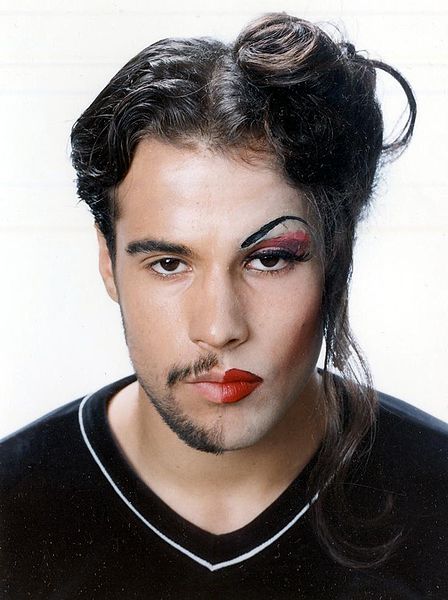 |
| (Wikipedia) |
Note: In the previous lesson we discussed then need to be sensitive when discussing race, national origin, and other cultural differences. This time we'll discuss the importance of sensitivity regarding the differences between women and man.
Get Ready: Do you think it's okay to assume that men are stronger than women, women are more emotional than men, and so on? Why or why not?
"PC," or "Political Correctness", as I wrote last time, has given rise to the increased use of inclusive language.
One area in which the move for political correctness has had a lasting impact is in gender-inclusive language, which does not discriminate between women from men.
Here's a famous example:
A man is killed in a car accident, and his son is rushed to the hospital. There, the surgeon looks at the boy and says, "I can't operate on this boy: he is my son." How is this possible?
The answer is simple: the doctor is a woman. We often assume members of some professions are men, and others women. Women are nurses, teachers, waitresses, and stewardesses. Men are firemen, policemen, and mailmen.
So an entirely new vocabulary has developed. We now say firefighter, police officer, and mail carrier. Actress and hostess are often just actor and host, like men in the same job. Two other familiar words, stewardess and waitress, have become flight attendant and (table) server, along with their male counterparts (formerly steward and waiter). (The -ess ending, like the -ette in cigarette, actually indicates a smaller version of something.)
For some terms the solutions are less elegant. Businessman or businesswoman, chairman or chairwoman: out. Businessperson, chairperson (both rather inelegant): in.
We have also stopped singling out what were considered unusual cases. "Lady doctor" and "male nurse": out. Imbalanced terms are out: "man and wife" is now "husband and wife" (or "wife and husband"). We used to talk about the human race as "man" or "mankind." Now it's "humanity" and "humankind."
Calling a doctor he or a nurse she presents problems. Unless specifically talking about a male or female, the more PC speakers and writers will try to avoid the pronoun altogether by rephrasing.
Instead of "Every man must do his best," we might say, "All people must do their best." Instead of "He who hesitates is lost," try "The one who hesitates is lost." An exception, of course, is when we are quoting someone, specially a traditional source.
Forms of address have also changed. The traditional "Miss" and "Mrs." are giving way to "Ms." And we hesitate to say "Mr. Mayor" or "Madam President" as we used to, though "Sir" and "Ma'am" are still common.
It's tough to know when to say what these days. The best thing to do is: Consider your listener(s), your audience, and choose the words which are least offensive. Sincere concern will usually make up for any errors made.
--------Read more: https://en.wikipedia.org/wiki/Gender
Practice: Find the better way to express the underlined word(s).
- That guy runs like a girl!
- Stop whining and man up!
- You know, she wears the pants in that family.
- You know what they say: boys will be boys.
- A man and his wife should put a lot of effort into communication.
- be brave, be confident, etc.
- [avoid this idea altogether; it's just an excuse for bad behavior]
- married couples
- slowly, awkwardly, etc. (describe with an adverb)
- is in charge of the household; is responsible for the family
Answers are in the first comment below.
Submitted to the Shenzhen Daily for November 5, 2007


Answers to the Practice: 1. d; 2. a; 3. e; 4. b; 5. c
ReplyDelete